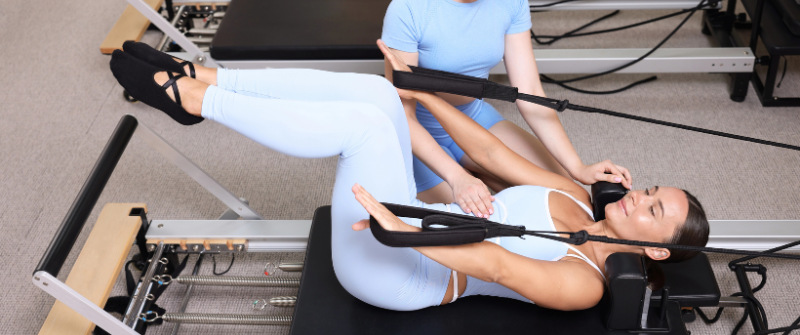
- by NEXO Team
- October 30, 2020
You can save money when operating your gym many different ways. One of the most notable is through a professional employer organization (PEO). The best way to understand how it can save you money when operating your gym is through understanding what a PEO is, its pros, and its cons.
What is a PEO?
When you use a PEO, you're engaging an outsourcing company to provide services for the business side of things. For example, you may engage a PEO to handle human resources, payroll, workers' compensation, benefits, or more. If you've got a small company that doesn't really have a need for a full-time human resources department or don't have the space to house such a facility. On the other hand, the gym may decide to engage in a PEO in order to move to a smaller facility. Either way, money is saved because the building isn't as large, which means there is less money spent on building rental or mortgage and utilities. By engaging a PEO, you can also take advantage of many other services, such as payroll processing, regulatory compliance, employee benefits (health and retirement), gym-related insurance (such as liability), employee development (such as technology, training, and development educational opportunities), tax filing for payroll, workers' compensation, and risk mitigation services.

When you agree to cooperate with a PEO, you'll enter into a co-employment agreement contract. This means that the PEO is the recorded employer because payroll taxes will be filed under the tax identification numbers of the PEO, not the client. However, the client has control on the daily activities of the employees when at work.
The fee for payroll services is typically a percent of the total gross payroll and often amounts to 3% to 15%, as well as overhead costs, known as an administration fee. A PEO also provides workers' compensation insurance coverage. For a gym, this is particularly beneficial because the insurance coverage offered is typically lower than that which can be obtained without a PEO. This is because the PEO is typically able to negotiate deals that cover multiple coverages for different clients (including the PEO), leading to a lower cost.
This is a legal action because, as noted, the PEO is the legal employer of the client company employees. Other areas of hiring and human resources can be outsourced to the PEO as well, such as drug screening of applicants and background checks.
As you can see, a PEO is beneficial for a lot of reasons and can help you save money in different ways. One of the most important is through saving time and human capital through enabling your employees to focus on the gym and letting someone else handle the business side of the company.
You may also see cost reductions through a reduction in employee obligations and legal liabilities to employees. At the same time, the use of a PEO may be beneficial in attracting and retaining talent because the PEO may make it easier for the client to offer better benefits.
What are the pros of a PEO?
Having a PEO offers several pros for you and your gym:
You don't have to worry about human resources activities
The primary motivation for collaborating with a PEO is to outsource human resources activities. When the PEO takes over, they are the ones that handle all responsibilities related to human resources, saving you time and money because you won't be responsible for everything related to the employees, just paying the agreed-upon fees for the PEO.
The PEO is always up-to-date on regulations
This means that your gym will always be compliant in a changing maze of requirements in the industry. As a result, you'll be able to offer the most current requirements to help your employees and clientele. This also means that the PEO will be able to help you create the most current plans to mitigate risk, meet regulatory requirements, and stay on top of your game.
Employee benefits will be competitive
It's important to remember that benefits includes health insurance. A PEO is able to get affordable benefits for employees through purchasing power.
Help with employment-related risks
You don't want to spend all this time building up your gym just to lose it all because you didn't mitigate the risks appropriately. Through a PEO, you'll be able to meet with licensed professionals and lawyers to mitigate risks and develop action plans to put into place if incidents occur.

What are the cons of a PEO?
Along with the pros comes the cons, such as:
Pricing for services
One of the biggest complaints about PEOs is the lack of transparency. Therefore, it can be hard to understand the invoices since they're lumped together. You'll want to take care in negotiations and be sure you understand your costs.
Inflexibility in health insurance plans
While the cost might be lower, you don't get a choice in the health insurance plans offered. Typically, the PEO will only have deals with one or two carriers and the plans offered are limited by the PEO. This means that you won't necessarily get the company or plan you want. If you want or need more flexibility in this respect, then you don't want a PEO. However, you'll want to weigh this con with the many pros to make sure that you can't live without this flexibility in order to gain the benefits.
You'll be getting a lot of responsive customer service
Many employees are supported by a PEO and, though customer service is responsive, it may feel impersonal. This is because you won't be likely to have a dedicated person for your gym. This could be a problem for those that want to develop personal relationships for long-term collaborations.
While these cons do exist in relation to the PEO, there are far more benefits and the top one is saving money and time, giving you greater peace of mind as a result of the ability of the PEO to meet your many needs.
Want to save money? Contact us to see how we can help.
Categories
Fill out a short form to contact us with your questions or to receive a customized quote.
Recent Posts
-
 Injury Waivers Aren’t Enough: Insurance Gaps Jiu-Jitsu Owners Overlook
January 21, 2026
Injury Waivers Aren’t Enough: Insurance Gaps Jiu-Jitsu Owners Overlook
January 21, 2026 -
 How Gym Risk Management Can Lead to Lower Premiums Over Time
January 21, 2026
How Gym Risk Management Can Lead to Lower Premiums Over Time
January 21, 2026 -
 Why Combat Sports Gyms Pay More for Insurance and How to Control Costs
January 21, 2026
Why Combat Sports Gyms Pay More for Insurance and How to Control Costs
January 21, 2026 -
 Functional Fitness Injury Trends That Impact Insurance Underwriting
January 21, 2026
Functional Fitness Injury Trends That Impact Insurance Underwriting
January 21, 2026 -
 Why Pilates Studios Face Unexpected Liability Despite Being Low-Impact
January 21, 2026
Why Pilates Studios Face Unexpected Liability Despite Being Low-Impact
January 21, 2026

